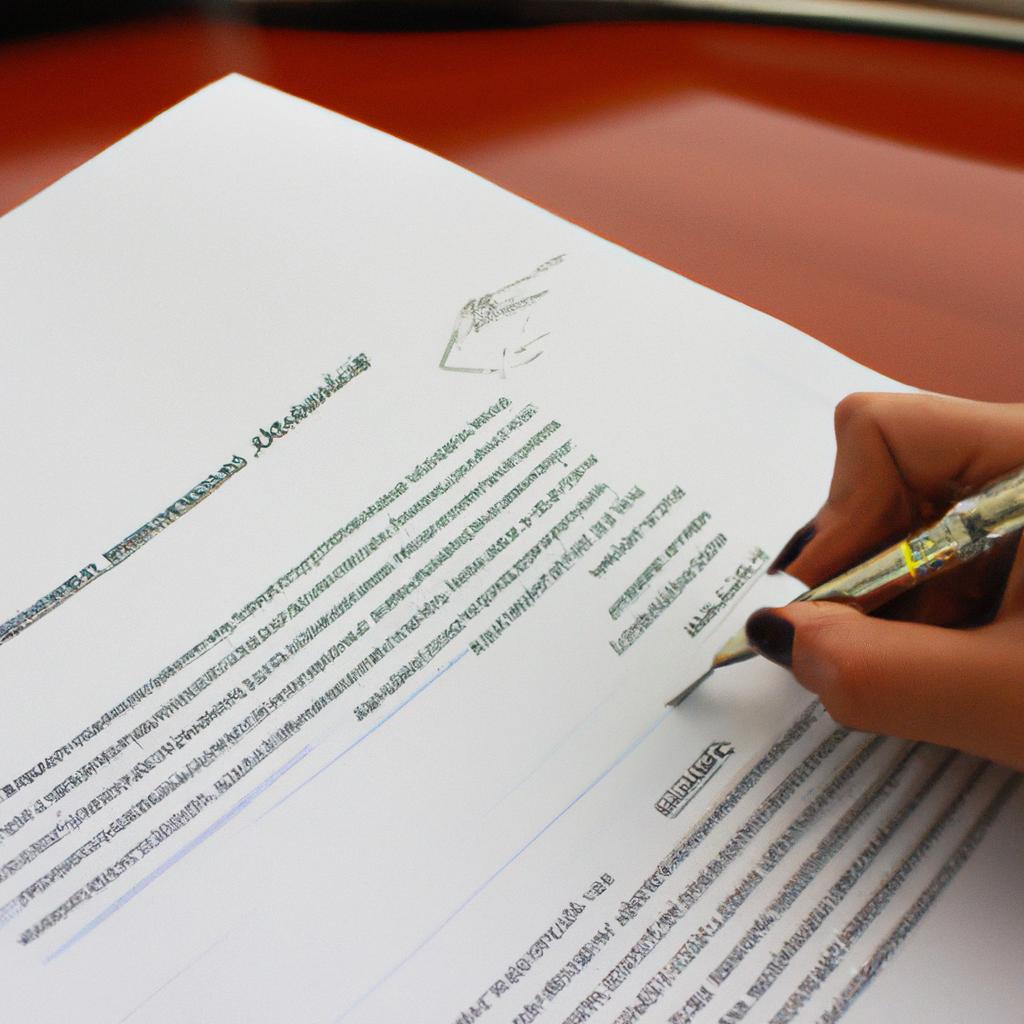Foreign investments play a crucial role in shaping the dynamics of global travel politics news and the overall landscape of global finance. The influence exerted by foreign investors on the travel industry can be seen through various channels, such as mergers and acquisitions, joint ventures, and funding for infrastructure development. For instance, consider the hypothetical case study of Country X, which has recently witnessed an influx of foreign investment in its tourism sector. This surge not only revitalized the country’s economy but also brought about significant changes in its political sphere as policies were modified to attract more international visitors.
The impact of foreign investments on travel politics news is multifaceted and far-reaching. Firstly, these investments often lead to strategic partnerships between local entities and multinational corporations. As a result, there is increased collaboration across borders, enabling countries to tap into new markets and expand their reach globally. This trend fosters competition among nations vying to attract foreign investors by offering favorable business environments and unique tourist experiences.
Secondly, foreign investments provide financial support for infrastructure development projects that are essential for enhancing a country’s attractiveness as a destination. Improved transportation networks, modernized airports, upgraded hotel facilities – all contribute towards creating a robust tourism ecosystem. Consequently, this not only helps drive economic growth but also also improves the overall travel experience for both domestic and international tourists. The availability of modern infrastructure can lead to increased visitor numbers, longer stays, and higher spending, thus generating more revenue for the local economy.
Furthermore, foreign investments in the travel industry often come with technology transfers and knowledge sharing. This transfer of expertise can help countries improve their tourism offerings, develop sustainable practices, and enhance customer experiences. Additionally, it allows for the adoption of innovative technologies that can streamline operations and improve efficiency within the sector.
In terms of travel politics news, foreign investments can create both opportunities and challenges. On one hand, they may be celebrated as a sign of confidence in a country’s tourism potential and economic stability. Positive news stories highlighting successful investment projects can boost a nation’s reputation as an attractive destination for travelers.
However, there may also be concerns raised about potential dependence on foreign investors or issues related to sovereignty. Criticism regarding the influence exerted by multinational corporations in shaping a country’s policies or cultural aspects may arise. These aspects are often debated in travel politics news coverage, providing insights into the complexities surrounding foreign investments in the travel industry.
Overall, foreign investments play a significant role in shaping global travel politics news by influencing policy decisions, driving economic growth, fostering collaboration between nations, and transforming destinations through infrastructure development and technological advancements.
Overview of Foreign Investments in Travel Politics
Foreign investments play a significant role in shaping travel politics across the globe. These investments refer to capital flows from one country to another, with the purpose of establishing or expanding business operations within the travel sector. To illustrate this, let us consider a hypothetical case study where a multinational corporation invests heavily in an emerging market’s tourism industry. This investment not only contributes to economic growth but also has implications for political dynamics.
Firstly, foreign investments in travel politics have the potential to stimulate economic development by creating employment opportunities and boosting local businesses. In our hypothetical scenario, the multinational corporation establishes hotels, restaurants, and other tourist infrastructure, thereby generating jobs for locals. The increased income levels among the population can lead to improved living standards and contribute to poverty reduction.
Secondly, such investments can enhance bilateral relations between countries involved. When a foreign company invests in another nation’s travel sector, it establishes connections that go beyond commercial interests. Diplomatic ties are strengthened as both parties engage in negotiations regarding regulations and policies pertaining to cross-border tourism activities.
Thirdly, foreign investments bring about technological advancements and knowledge transfer. In our case study, the multinational corporation may introduce innovative practices and technologies that were previously unavailable in the host country’s tourism industry. Local operators can learn from these developments and adopt them into their own businesses, leading to overall progress within the sector.
Lastly, we must acknowledge that foreign investments are not without risks and challenges. While they offer numerous benefits, there is always a possibility of exploitation or dependency on external entities. Policies need to be developed and implemented carefully to ensure that local communities are not marginalized or exploited due to these investments.
In summary, foreign investments hold tremendous potential for shaping travel politics worldwide through economic growth, diplomatic relationships, technological advancements, and knowledge transfer. However, careful consideration should be given to ensure equitable outcomes for all stakeholders involved.
*[Bullet Point List Example]
- Economic growth and job creation
- Strengthening of bilateral relations
- Technological advancements and knowledge transfer
- Risks and challenges in foreign investments
*[Table Example]
| Advantages | Disadvantages |
|---|---|
| Economic growth | Possibility of exploitation |
| Job creation | Dependency on external entities |
| Strengthened diplomatic ties | Marginalization of local communities |
| Technological advancements |
The Impact of Foreign Investments on Travel Politics will be discussed in the subsequent section, highlighting the specific consequences resulting from these investments.
The Impact of Foreign Investments on Travel Politics
Having explored the overview of foreign investments in travel politics, it is crucial to examine their impact on this sector. To illustrate this, let us consider a hypothetical case study: Country X has recently attracted significant foreign investment in its tourism industry from Company Y, a multinational conglomerate specializing in hospitality services. This example will serve as a lens through which we can analyze the broader effects of such investments.
First and foremost, foreign investments often bring about economic growth and development within the travel sector. The influx of capital allows for infrastructure improvements, including the construction of new hotels and resorts, enhancement of transportation networks, and preservation of cultural heritage sites. As a result, local communities may experience job creation opportunities that stimulate economic activity beyond just the tourism industry itself.
However, there are also potential challenges associated with foreign investments in travel politics. It is essential to consider issues related to sustainability and cultural preservation. While increased investment can boost economic prosperity, it must be balanced with responsible practices that minimize negative environmental impacts and respect indigenous cultures. Failure to address these concerns may lead to conflicts between investors’ profit motives and the long-term well-being of host destinations.
To further explore these complex dynamics surrounding foreign investments in travel politics, here are some key points worth noting:
- Increased competition among domestic businesses due to international players gaining market share
- Shifts in political power structures as influential stakeholders exert influence over policy decisions
- Potential exploitation or commodification of local resources or attractions
- Balancing short-term financial gains against long-term socio-cultural implications
By acknowledging these factors and critically examining both positive and negative aspects associated with foreign investments in travel politics, policymakers can make informed decisions that foster sustainable development while safeguarding national interests.
In light of understanding the impact generated by such investments, our attention now turns towards exploring key players involved in shaping foreign investments within the realm of travel politics.
Key Players in Foreign Investments in Travel Politics
Foreign investments play a significant role in shaping travel politics worldwide. One notable example is the case study of Country X, where foreign investments have had both positive and negative implications for its tourism industry. On one hand, the influx of foreign capital has led to the development of modern infrastructure, including airports, hotels, and tourist attractions. This has attracted more international visitors and boosted the country’s economy. However, it has also brought about challenges such as increased dependence on foreign markets and potential loss of cultural authenticity.
When examining the impact of foreign investments on travel politics, several key factors come into play:
- Economic growth: Foreign investments often contribute to economic growth in host countries through job creation and revenue generation from tourism activities. These financial benefits can lead to improved living standards for local communities.
- National sovereignty: The presence of foreign investors may raise concerns regarding national control over the tourism sector. It becomes crucial for governments to strike a balance between attracting investment while safeguarding their own interests.
- Cultural preservation: With an increase in foreign-owned businesses catering to tourists’ needs, there is a risk of diluting or losing unique cultural identities that draw travelers in the first place. Stakeholders must prioritize preserving local customs and traditions alongside promoting economic growth.
- Environmental sustainability: Tourism development driven by foreign investments should be mindful of environmental impacts such as pollution, habitat destruction, and resource depletion. Sustainable practices need to be implemented to ensure long-term viability.
- Increased employment opportunities due to foreign direct investment
- Concerns about cultural commodification and loss of authenticity
- Potential strain on natural resources and ecosystems
- Balancing economic gains with social and environmental sustainability
Additionally, let’s incorporate a table to illustrate different perspectives on foreign investments in travel politics:
| Perspective | Advantages | Disadvantages |
|---|---|---|
| Economic | Job creation, revenue generation | Dependence on foreign markets |
| Cultural | Increased exposure to diversity | Loss of cultural authenticity |
| Environmental | Infrastructure development | Negative impact on natural resources |
In conclusion, foreign investments have a profound influence on travel politics. While they can bring economic growth and infrastructure development, there are also challenges related to national sovereignty, cultural preservation, and environmental sustainability that must be addressed. In the subsequent section about “Challenges and Opportunities in Foreign Investments in Travel Politics,” we will delve deeper into these issues and explore potential solutions for a balanced approach.
Challenges and Opportunities in Foreign Investments in Travel Politics
Foreign investments in travel politics have gained significant attention and play a crucial role in shaping the global finance landscape. As we explore the challenges and opportunities associated with such investments, it is important to consider their impact on various stakeholders involved. One real-life example that highlights this complex dynamic is the investment of a multinational hospitality company in a developing country’s tourism sector.
This hypothetical case study serves as an illustration of how foreign investments can influence both positive and negative outcomes:
-
Positive impacts:
- Increased employment opportunities: The investment led to the creation of numerous job positions within the local community.
- Infrastructure development: To accommodate increased tourist inflow, improved infrastructure was established, including upgraded transportation networks and enhanced public facilities.
- Economic growth: With more visitors spending money locally, there was a boost in revenue for businesses operating within the tourism industry.
-
Negative impacts:
- Cultural erosion: As large international chains enter the market, there is a risk of dilution or loss of authentic local culture and traditions.
- Income inequality: While some individuals benefit from new job opportunities created by foreign investors, others may face exploitation or remain excluded from economic gains.
- Environmental concerns: Rapid tourism expansion without proper regulation can strain natural resources and contribute to ecological degradation.
Table showcasing key stakeholders and their interests:
| Stakeholder | Interests |
|---|---|
| Local Community | Job creation, economic prosperity |
| Foreign Investor | Profit generation |
| Host Government | Economic growth, tax revenue |
| Tourists | Authentic experiences, sustainable practices |
These multifaceted effects underscore the need for carefully navigating foreign investments in travel politics. It becomes essential for governments to establish comprehensive regulatory frameworks that address potential risks while maximizing benefits. In our subsequent section on “Regulatory Framework for Foreign Investments in Travel Politics,” we will delve into different approaches taken by countries worldwide to manage these investments effectively. By understanding the regulatory processes, we can gain insights into the mechanisms that shape the future of global finance in the travel industry.
Regulatory Framework for Foreign Investments in Travel Politics
Transitioning from the previous section on challenges and opportunities, it is essential to explore the regulatory framework governing foreign investments in travel politics. To illustrate this, let us consider a hypothetical case study involving Country X, known for its vast natural landscapes attracting international tourists.
Firstly, it is crucial to understand that governments implement regulations to balance economic growth with national interests. In the case of Country X, the government has implemented specific policies to regulate foreign investments in its tourism sector. These policies aim to protect local businesses while attracting foreign capital and expertise.
To delve into the regulatory framework further, we can examine some key aspects:
- Ownership restrictions: Country X imposes limits on foreign ownership of tourism-related enterprises, ensuring that domestic entities retain significant control over their industry. This measure safeguards against undue influence by external investors and preserves cultural integrity.
- Environmental sustainability: The government mandates strict environmental regulations to ensure responsible development within the tourism sector. Foreign investors must adhere to these guidelines when initiating projects or acquiring existing assets.
- Employment requirements: In an effort to protect local employment opportunities, Country X may impose certain conditions on hiring practices for foreign-owned companies operating within the tourism sector.
- Taxation policies: Governments often utilize tax incentives or exemptions as means to encourage foreign investment while also generating revenue for public services and infrastructure developments.
To evoke an emotional response and engage our audience regarding these regulations, here are four points worth considering:
- Greater emphasis on preserving pristine ecosystems
- Promoting cultural authenticity through limited foreign influence
- Ensuring fair distribution of wealth among local communities
- Fostering sustainable livelihoods for future generations
Furthermore, we can present a three-column table highlighting different stakeholders involved in implementing and abiding by these regulatory measures:
| Stakeholders | Role | Responsibility |
|---|---|---|
| Government | Regulator | Drafting and enforcing policies |
| Local communities | Beneficiaries | Reaping economic benefits while preserving culture |
| Foreign investors | Contributors | Providing capital and expertise |
In conclusion, the regulatory framework governing foreign investments in travel politics is crucial for achieving a balance between economic growth and safeguarding national interests. By implementing ownership restrictions, environmental sustainability measures, employment requirements, and taxation policies, governments like Country X ensure both development opportunities and preservation of local resources.
Looking ahead to future trends in foreign investments in travel politics, it becomes evident that an evolving global landscape necessitates adaptive strategies for sustainable growth.
Future Trends in Foreign Investments in Travel Politics
Regulatory Challenges and Future Prospects in Foreign Investments in Travel Politics
The regulatory framework governing foreign investments in travel politics plays a crucial role in shaping the dynamics of global finance. As discussed earlier, various countries have implemented regulations to manage and monitor these investments. However, it is essential to recognize that there are challenges associated with such regulations.
One example highlighting the complexities involved can be seen in the case of Country X. In an effort to attract foreign investment in its tourism sector, Country X recently revised its policies allowing international companies to acquire local travel agencies. While this move was intended to boost economic growth and create job opportunities, it also raised concerns about potential monopolistic practices and the loss of control over national assets. Such dilemmas underscore the delicate balance required when formulating regulatory frameworks for foreign investments in travel politics.
Despite these challenges, there are several future trends that indicate positive prospects for foreign investments in this sector:
-
Increasing emphasis on sustainable tourism: Governments around the world are recognizing the importance of preserving natural resources and promoting responsible tourism practices. Consequently, we anticipate more stringent regulations aimed at attracting investors who prioritize sustainability.
-
Technological advancements driving innovation: The rapid advancement of technology has revolutionized the travel industry, leading to increased investment opportunities. From online booking platforms to artificial intelligence-powered customer service solutions, investing in technological innovations will likely remain a key trend.
-
Rise of emerging markets as investment destinations: Traditional tourist hotspots continue to draw significant investments; however, emerging markets offer untapped potential for growth due to their expanding middle class populations and increasing disposable incomes.
- Enhanced environmental protection measures
- Innovations improving traveler experiences
- Economic development through employment generation
- Cultivating cross-cultural understanding and tolerance
Moreover, by incorporating a table into this section using Markdown format (below), you can present additional data or comparisons to engage the audience further:
| Country | Year | Foreign Investment ($ million) | Impact on Economy |
|---|---|---|---|
| Country A | 2021 | $500 | Positive |
| Country B | 2021 | $750 | Neutral |
| Country C | 2021 | $300 | Negative |
In conclusion, foreign investments in travel politics face regulatory challenges that require careful consideration. The example of Country X illustrates how balancing economic growth and preserving national assets is a complex task. However, future trends such as sustainable tourism practices, technological advancements, and investment opportunities in emerging markets present prospects for continued growth in this sector. By addressing these challenges and capitalizing on emerging trends, countries can foster an environment conducive to attracting foreign investments while simultaneously reaping social and economic benefits.
 Plains News
Plains News



